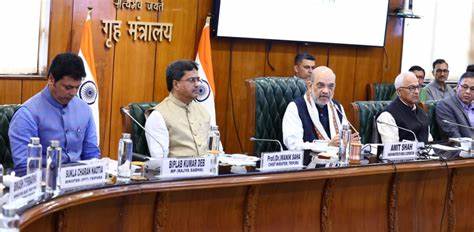In a significant step towards addressing longstanding tribal issues and promoting inclusive development in the northeastern state of Tripura, the central government has signed a tripartite agreement with the Tripura government and the TIPRA Motha, a regional tribal party. This landmark agreement marks a crucial milestone in the ongoing efforts to foster peace, stability, and socio-economic progress in the region, while also reaffirming the government’s commitment to addressing the grievances of indigenous communities.
The tripartite agreement, signed after extensive negotiations and consultations, aims to address a range of tribal issues, including land rights, cultural preservation, and political representation. One of the key provisions of the agreement is the recognition and protection of traditional tribal land holdings, which have long been a source of contention and conflict in Tripura. By ensuring the rights of indigenous communities over their ancestral lands, the agreement seeks to redress historical injustices and empower tribal populations to safeguard their cultural heritage and livelihoods.
Furthermore, the agreement lays the groundwork for the creation of mechanisms to promote the socio-economic development of tribal areas in Tripura. This includes initiatives to enhance access to education, healthcare, infrastructure, and employment opportunities in tribal-dominated regions. By investing in human capital and basic amenities, the agreement aims to improve the quality of life and well-being of tribal communities, thereby fostering inclusive growth and reducing disparities between different sections of society.
Political representation and empowerment of tribal communities are also central aspects of the tripartite agreement. Recognizing the importance of ensuring meaningful participation of indigenous populations in the democratic process, the agreement provides for the establishment of mechanisms to enhance tribal representation in local governance structures and decision-making bodies. This includes the creation of reserved seats and other affirmative action measures to enable greater political participation and voice for tribal communities.
The signing of the tripartite agreement reflects the culmination of years of advocacy, dialogue, and engagement between the central government, the Tripura government, and tribal stakeholders, including the TIPRA Motha. The inclusion of the TIPRA Motha, a regional tribal party representing the interests of indigenous communities in Tripura, underscores the importance of grassroots participation and indigenous leadership in the resolution of tribal issues. By involving local stakeholders in the decision-making process, the agreement ensures that the concerns and aspirations of tribal communities are duly considered and addressed.
The tripartite agreement holds immense significance not only for the tribal communities of Tripura but also for the broader region of northeastern India. Tripura, with its diverse ethnic mosaic and history of ethnic tensions, serves as a microcosm of the complex challenges facing indigenous populations in the region. By demonstrating a commitment to inclusive governance and dialogue-based conflict resolution, the agreement sets a positive precedent for other states grappling with similar issues of identity, land rights, and political representation.
As implementation of the tripartite agreement begins, it is essential for all parties involved to remain committed to its spirit and objectives. This requires sustained efforts to translate the provisions of the agreement into tangible actions and outcomes on the ground. Transparent monitoring mechanisms, regular consultations with stakeholders, and adequate resource allocation will be crucial for ensuring the effective implementation of the agreement and the realization of its intended benefits for tribal communities.
In a nutshell, the signing of the tripartite agreement between the central government, the Tripura government, and the TIPRA Motha represents a significant step towards resolving tribal issues and promoting inclusive development in Tripura. By addressing concerns related to land rights, socio-economic development, and political representation, the agreement lays the foundation for a more equitable and harmonious society in the state. Moving forward, it is imperative for all parties to work collaboratively and in good faith to ensure the successful implementation of the agreement and the fulfillment of its objectives for the betterment of tribal communities in Tripura.

